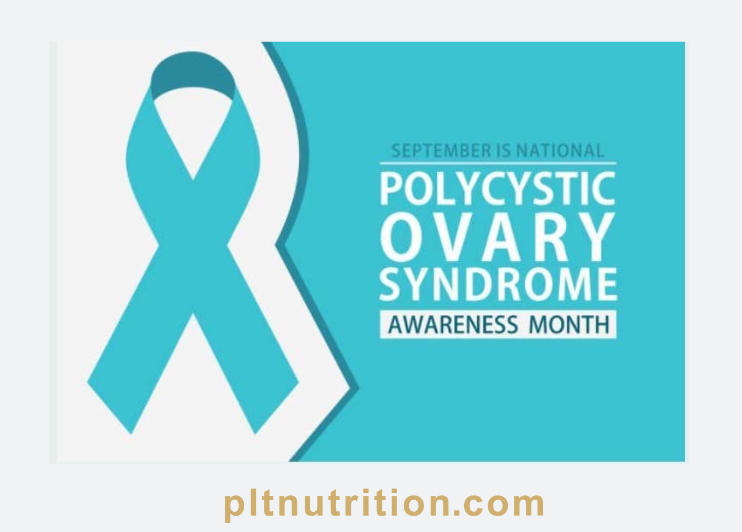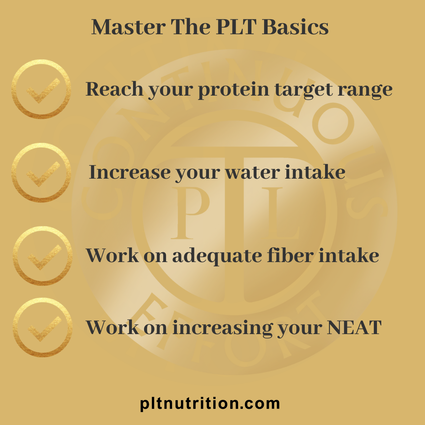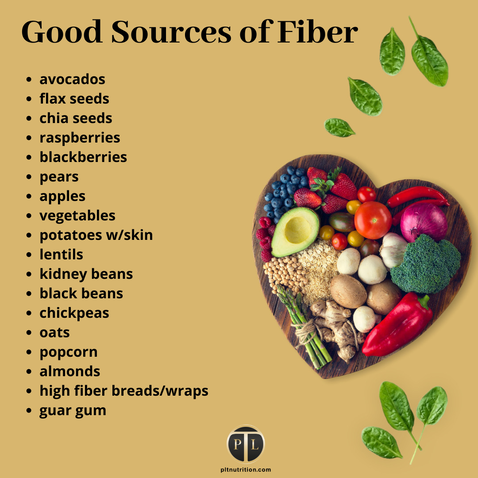|
Coach Joanna - Registered Dietitian SEPTEMBER IS PCOS AWARENESS MONTH At PLT Nutrition we unfortunately have many clients who suffer from PCOS, so we would like to share some information on how to manage the symptoms. What is PCOS? PCOS is POLYCYSTIC OVARIAN SYNDROME. It is the most common endocrine (hormone) disorder in women. Here's the science: People with PCOS typically have small immature follicles (mistaken as cysts) on their ovaries, caused by an overproduction of hormones that leads to irregular menstrual cycles as the first indication of a problem. But even with this, PCOS often goes undiagnosed for a long time. It is caused by four main factors:
In addition to the irregular periods, PCOS symptoms include: excessive hair growth, weight changes and trouble losing weight, baldness or thinning hair, high testosterone levels, sleep problems and fatigue, acne, pelvic pain, mood changes and infertility.
PCOS has also been found to continue to impact women through the menopausal years, with women with PCOS beginning menopause later. In addition, the risk of diabetes and heart disease worsens with age. Now that we know more about what PCOS is, what can be done to help? With changes to diet and lifestyle many are able to manage their symptoms, improve the odds of getting pregnant, and reduce their risk of other health concerns. Weight loss of 5-10% of total body weight improves both reproductive and overall health. But even with good advice, many struggle to implement it when fatigue makes exercise unappealing, and lack of sleep increases appetite and makes processed foods more desirable. When mental health is suffering it can make everything seem harder. But change is possible. Let’s talk about dietary changes first. A diet high in refined carbohydrates (starchy, sugary, processed foods and beverages), can make insulin resistance and weight loss more difficult to manage. WHAT TO DO INSTEAD: Below are dietary recommendations from current research that have been shown to be effective in improving PCOS. The good news is that the suggestions that follow are all part of the basics we focus on at PLT The first nutrient research recommends focusing on is high fiber foods, especially non-starchy veggies and low-sugar fruits. These can help with insulin resistance by slowing down digestion and reducing the effect of sugar on the blood. Examples of high fiber foods include: avocados, seeds, berries, whole fruits & veggies, legumes, oats, popcorn, almonds, & high fiber breads & wraps. The second nutrient to pay attention to is also going to sound very familiar around PLT, and that is focusing on lean protein sources like tofu, chicken, and fish because these are very filling, and one study showed a higher protein diet resulted in greater weight loss and decreases in glucose. Foods that help reduce inflammation may also be beneficial, like tomatoes, kale, spinach, almonds and walnuts, olive oil, berries, and fatty fish high in omega-3 fatty acids, like salmon and sardines. LIFESTYLE CHANGES One of the lifestyle changes that can help improve PCOS symptoms is exercise and daily physical movement. When paired with a limited intake of refined carbohydrates, both can help reduce insulin resistance. Many experts agree that at least 120 minutes (or 4-30 minute sessions) per week of exercise is ideal. Exercise has been shown to improve ovulation and menstrual regularity, improve insulin sensitivity, decrease androgens, decrease risk of cardiovascular disease, and improve mental health. What’s important is to start where you are with an activity you actually enjoy doing, because then you’ll be more likely to keep at it, and then build from there. A second lifestyle improvement to try would be stress reduction techniques like journaling, taking a walk, working on a hobby, deep breathing exercises, or yoga and meditation to improve the symptoms of anxiety and depression. Pay attention to your thoughts, and when you notice yourself being unkind or overly critical to yourself, practice speaking to yourself as you would your best friend, and reframe the thoughts. Acknowledge that your condition can be a real struggle sometimes. And while it’s not your fault, it is your responsibility to take care of yourself in the best and kindest way you can. In addition, speaking with a therapist or another healthcare professional or joining a PCOS support group may be beneficial. A third lifestyle factor to pay attention is getting enough sleep. Good sleep helps balance hormones and mood, and makes it easier to regulate weight and appetite. SUPPLEMENTS Although the research is still young, supplementing with inositol, which is an insulin sensitizer, has been shown to help regulate hormone levels and menstrual cycles, as well as improve insulin sensitivity, egg quality, and fertility. Two in particular are showing great promise, myo-inositol (MI) and d-chiro-inositol (DCI), either taking MI alone or in a combination of a 40:1 ratio with DCI. If this sounds like something you would like to try to see if it improves your symptoms, it’s best to consult with your doctor before beginning any supplements. THE BIG TAKEAWAY While daily activity, low sugar intake, and a low-inflammation diet may lead to weight loss, which in turn may improve ovulation, the truth is that it can be harder to lose weight when you have PCOS. But focusing on what you eat and how you move has a bigger influence on your overall health and symptoms than your weight on the scale, so let those improvements be your motivation to continue. One great resource to check out is the PCOS Awareness Association https://www.pcosaa.org/ · This cookbook by Angela Grassi, MS, RDN, LDN may also be helpful The PCOS Nutrition Center Cookbook: 100 Easy and Delicious Whole Food Recipes to Beat PCOS Comments are closed.
|
AuthorI'm Paul Leonard, CEO & founder of PLT Nutrition. Categories
All
|
|
Current PLT Members
|
Quick Links
|
Connect With Us
|





 RSS Feed
RSS Feed
